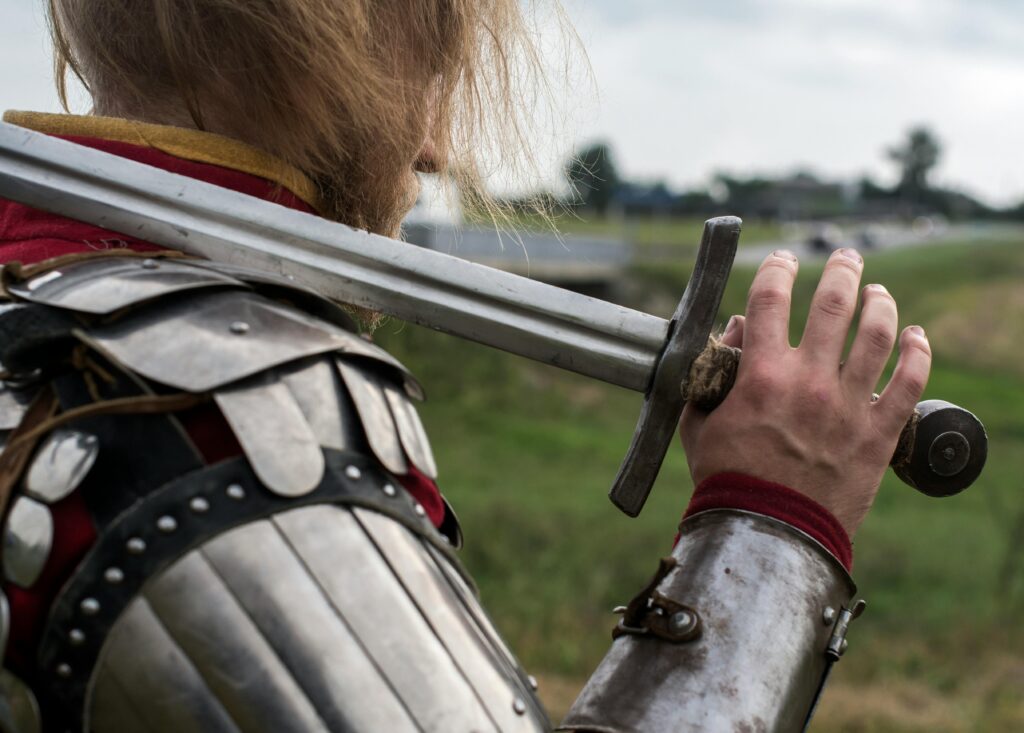How to Get Started in HEMA: Find a Group

Historical European Martial Arts are one of the most rapidly growing parts of the Martial Arts world with new groups, sites, and schools opening up all the time in both the West and East. Yet for a new practitioner, even with all this choice, it can be hard to know where or how to start. This is the first in a series of articles designed to give some guidance for someone interested in starting out.
If you can practice with other folks, in person, that is really the best way to learn a martial art. HEMA groups predominantly fall into a few categories: Sparring practices, study groups, and schools.
Sparring Practices
The focus of these groups tends to be on fighting, personal experimentation, and self-study. Learning in a sparring practice is like learning salsa dancing by going out to dances. This approach does not work for everyone, especially if you’re someone who wants a more structured approach to learning.
These environments can be low pressure (i.e., there are no expectations on you progressing in any particular way), there’s lots of room for just having fun, and if there are good fighters in the group you can develop a very good intuitive sense of combat that can be effective.
The drawbacks are that it can be a very easy way to develop bad martial habits (techniques that just don’t work when challenged properly), get injured (due to unsafe sparring practices, or simply because you don’t learn how to move your body correctly and give yourself long-term joint or muscle damage), and its very hard to access the art and its broader applications.
This is not the best environment if you want to learn in a structured way about the traditions (where the arts came from and why), the science (why does one technique work over another), or want to implement the art for other aims than just sparring (fitness, personal health and development, interest in learning, historical knowledge, teaching, etc).
All that being said there is a local sparring group in my area that I send experienced students out to semi-regularly as a means of testing and expanding their art against a diversity of practitioners of all different abilities, and some of their fighters are great.
Study Groups
A study group is a group with no formal instructor that is either organized by a facilitator or run by the entire group or a committee of some kind. The goal of a study group is on mutual exploration and learning of a particular discipline (longsword, rapier, sword and buckler, etc), or art (Kunst de Fechtun–a German tradition, Armizare–an Italian tradition, Angelo Smallsword, etc). These groups can be very formal with specific meeting times, resources (following a particular manual or part of a larger group plan), and schedules (i.e., 20 minutes of warm-up then 30 minutes of practicing from the book). They can also be informal groups where members gather, bring their own study resources, have an open unstructured program, or flit from one subject to another.
When selecting a study group:
- Make sure that the group fits your personal values and desires. I think it’s worth simply asking the group if they have stated or unstated values they can articulate. Why do they do what they do? What do they care about?
- Determine if they’re pursuing a reputable path of study. Are they studying from an historical or modern training manual that is widely recognized? Do they have an approach?
- Make sure they’re safe. What standards do they use to maintain safety? Do they use appropriate sparring equipment and how do they know? (there are lots of models to follow for these things).
There are study groups in most major cities in North America and Europe as well as in quite a few Middle-Eastern and Asian centres. Academie Duello has many formal and informal study groups. You can look at this list of affiliate schools and study groups.
You can also check the HEMA group finder linked below, to find other groups throughout the world. If there’s no group in your area, then resources like Duello.TV and the Academie Duello Instructor Training program are good starting points for building your own study group.
Schools
Because of the relative youth of HEMA in its modern practice, there are not that many instructors that I would trust as true experts. Exercise critical thinking and be sure to investigate before you join.
Tom Leoni and Steve Reich wrote an article several years ago that I think is still relevant to this subject on finding good teachers and spotting bad Budo in European martial arts. It’s worth checking out as it echoes most of my own thoughts.
Take some time to develop a sense of your own goals or what they might be. Then you can ask informed questions.
- Are you interested in a martial art (a practice whose roots are in application in real environments – even if you never intend to be in one) or a martial sport (a practice whose application is intended for modern tournaments)?
- Are you interested in the history and tradition of an art or are you happy to practice something that is a modern invention or simply inspired by historical traditions? (There are good arts in both camps.)
- Are you seeking fitness, personal wellness, historical study, or other things that go beyond simply fighting with a sword?
- Are you looking for community and camaraderie, or do you want to be left alone to pursue the study more or less for yourself? (Some groups are more social than others.)
Joining a martial arts school can be quite a big part of your life, if you let be. So be sure to inform yourself and approach this with both a sense of adventure and informed thought.
Be sure to check out the HEMA Club Finder to find a group in your area. Also be sure to check out our free Getting Started with Longsword and Rapier courses to orient yourself to these disciplines from the comfort of your living room.
Devon



Responses